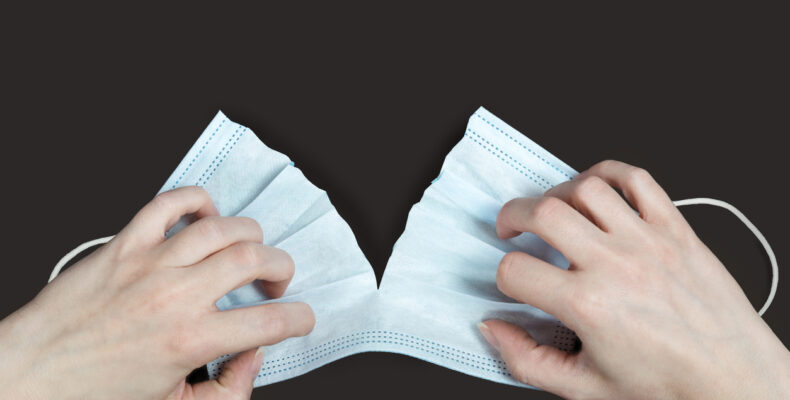
COVIDIOT: Balancing freedom of expression and morality in trade mark law
This article was originally commissioned and published in ECTA Bulletin, March 2025
It is hard to believe that it has been five years since the Covid-19 pandemic, one of the deadliest in modern history. Covid is however a divisive topic and was the subject of the Grand Board of Appeal’s decision in case, 16/05/2024, R260/2021-G![]() .
.
This case clarifies the balance between freedom of expression and the registrability of signs that violate public policy or moral standards under Article 7(1)(f) EUTMR (hereafter Article 7(1)(f)), building on the Court of Justice’s statement from 27/02/2020, C‑240/18 P, Fack Ju Göhte, EU:C:2020:118 that ‘freedom of expression must be taken into account’ when applying Article 7(1)(f).
Background
On 12 August 2020, during the pandemic, Matthias Zimsack applied to register EUTM No. 18288813![]() for goods in classes 6, 9 and 28, including board games and toys.
for goods in classes 6, 9 and 28, including board games and toys.
The Examiner rejected the application under Article 7(1)(f) stating that “COVIDIOT” is an insulting term that offends moral principles by discrediting those who question government measures and could teach children, as part of a game, to defame others.
In response the applicant argued that the examination of moral principles must balance the alleged defamation with freedom of expression and artistic freedom, stating that absolute grounds “shall not serve to merely censure bad taste”.
The Examiner maintained the objection, stating that “Article 7(1)(f) prevents the registration of EUTMs that contradict moral standards but does not restrict freedom of art or expression… the refusal to register the sign does not grant it trade mark protection under trade mark law [but] does not prohibit the use of the sign, even in business activities”.
The applicant appealed the decision arguing that “No specific individuals are attacked” and that satirical references to the COVID-19 should remain permissible, as “Covidiot” is now part of the political debate in both German and English-speaking countries. They claimed the term is protected by freedom of expression and that similar trade marks have been accepted by the Office.
On 01 October 2021, the rapporteur informed the Board that the application may also be considered non-distinctive under Article 7(1)(b).
Due to its legal complexity and significance for freedom of expression under Article 7(1), the case was referred to the Grand BOA on 16 December 2021.
Third parties were invited to file observations. INTA highlighted the lack of clarity regarding morality objections, emphasizing the need to balance public’s perceptions of morality with freedom of expression.
Decision
In May 2024, the Grand BOA upheld the refusal of the sign for violating accepted principles of morality.
They held that although freedom of expression is relevant under Article 7(1)(f), limitations are justified when a mark offends basic societal values. The article applies not only to prohibited trade marks, but also discourages support for business aims through marks that violate accepted moral principles.
The term ‘COVIDIOT’ was deemed to ridicule the deadly pandemic and trivialise its tragedy, thus violating accepted moral principles. Consequently, the refusal constituted a justified limitation of the applicant’s right to freedom of expression.
In reaching their decision the Grand BOA highlighted the following:
- A sign contradicts ‘accepted principles of morality’ if the public perceives it as opposing fundamental moral values. Whether these principles are ‘accepted’ depends on social consensus. An applicant’s interests must be weighed against public interests, and Article 7(1)(f) applies when a sign is seriously abusive and likely to cause significant offence;
- The benchmark is whether the relevant public perceives the contested sign as contrary to the fundamental moral values and standards of society as they exist at the relevant moment in time (27/02/2020, C-240/18 P, Fack Ju Göhte, EU:C:2020:118);
- The examination should consider how a reasonable person with average sensitivity perceives the mark, considering the context in which it is encountered. This perception may encompass individuals beyond the target audience, including those who may encounter the sign in their daily lives, regardless of their interest in the goods/services;
- The evaluation reference must be within the EU, but it is not necessary to demonstrate a violation of a universally accepted moral principle existing across all Member States as moral standards can differ. In this case, the decision was based on the perception of the English-speaking public;
- The relevant date for assessing Article 7(1)(f) is the filing date rather than the date of the decision as asserted by the applicant;
- The applied trade mark ridicules one of the deadliest pandemics in a commercial context. While ‘COVID’ can be part of a trade mark, combining it with ‘idiot’ and the image of a jesters’ hat in a gaming context significantly trivialises the pandemic;
- Freedom of expression must be considered under Article 7(1)(f). However, a trade mark’s political content does not grant it greater protection, since trade marks are not essential for voicing political opinions. Article 7(1)(f) is a valid limitation to freedom of expression by preventing the registration of marks deemed contrary to fundamental societal values at the filing date. In this case, the balance favours these principles, leading to the refusal of the application for all goods under Article 7(1)(f), as the applicant may still use the mark, unless prohibited by national law;
- The application is also refused under Article 7(1)(b) EUTMR for lacking distinctive character, as consumers will see ‘COVIDIOT’ merely as a reference to a historical, social and political event.
Final comments
Whilst arguably the mark could have been refused under Article 7(1)(b) alone, it is interesting that the EUIPO also pushed for a decision under Article 7(1)(f), a ground for refusal that is often forgotten about. This case provides further clarity around those types of marks where the application of Article 7(1)(f) is justified and the balance with freedom of expression. COVID-19 is of course a very divisive subject and at the time the application was filed, many countries still had stringent restrictions in place. However given the time which has since passed it is questionable, if the same mark was filed today, whether an Article 7(1)(f) objection would still be raised.



